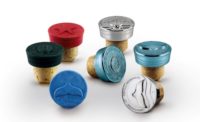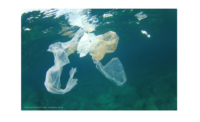With over 25 years of experience in the plastics industry, I am aware of the waste management issues in Asia and the impact on our oceans. I’ve seen the photos. I’ve watched the documentaries. I’ve been part of several panel discussions.
None of that prepared me for being on the beaches in Indonesia and walking on and through the piles of trash. None of that prepared me for watching the local fishermen wade through garbage-filled waters to get to their boats.
Recently, I had the opportunity to visit the small fishing village of Muncar in Banyuwangi, Indonesia, and spend two days on-the-ground with Project STOP. The organization partners with cities in Southeast Asia to build sustainable waste systems to end plastic leakage into the oceans. Project STOP was initially created by Borealis and SYSTEMIQ in 2017. NOVA Chemicals joined as a strategic partner in 2018 and has made a three-year investment of nearly $2 million USD. When I had the opportunity to visit Project STOP in person following a business trip to Asia, I jumped at the chance. It was an experience I will not forget.
Meeting the People
As I landed in the Banyuwangi airport, I really wasn’t sure what to expect. Within moments, I was welcomed by Jason Hale, scaling director with Project STOP, and went to meet with the entire local team. I was immediately impressed by their credentials, experience and warm hospitality. These are not simply volunteers hoping for a better tomorrow. Rather, the team is made up of experts in waste management, plastic recycling, organics management, behavior change, program governance, and business development. They aren’t sitting in a think tank but have their boots on the ground, immersed in the culture to lead this seismic shift.
Although the duration of my trip was short, I tried to maximize the experience by meeting as many people as possible. I met community members, local store owners, fishermen and families to better understand the need for municipal waste services. With the help of an interpreter, I had tea with a local ‘mayor’ and his wife, along with other women who are engaged in leading community education.
As I walked through the community, I saw local shops selling individual packages of powdered milk, food and detergent. On one hand, it’s easy to understand the value that plastic packaging is bringing to this economy offering product safety and healthy options in affordable portion sizes. At the same time, without adequate municipal waste services, there aren’t ways to capture and recycle the plastic or other material packaging that still have value beyond one use.
I also saw firsthand that this is not JUST a plastics issue. It is a waste management issue. The problem is much bigger than plastics alone. The need is to find ways to support these communities, encourage their livelihoods and find ways to help growing populations use products they need while also living in harmony with our environment. The families I met are just like you and me. They want the best future for their children and grandchildren. And, up to this point they have had ZERO access to any municipal waste services. They have had no other options but to dump or burn their waste. Much of it ends up in our oceans.
Finding Solutions
Southeast Asia has been identified as a major source of marine plastic debris as economic development and plastics consumption have outpaced the expansion of waste management systems. Muncar was chosen as the first Project STOP location due to the seriousness of the challenge, coupled with strong leadership and environmental commitment at national, regency and local levels. The aim is to scale the program to other cities and regions.
I appreciate Project STOP’s mission to help local cities design and implement a low-cost waste management system in which all households and institutions benefit from collection. They, like all of us, are driven to keep plastics, and all trash, out of the environment. I believe the difference is that Project STOP is taking a holistic view of the problem and creating sustainable, low-cost waste systems that capture as much value as possible. The many existing local initiatives and informal waste pickers are supported and integrated into the business model.
For example, I toured a local waste transfer station and sortation facility (TPST) as well as the grounds of a future, larger TPST to serve an adjacent community. Project STOP is funding the design and construction of these facilities where waste is sorted and processed. The first facility has already created nearly 75 local jobs. The goal is that 20 percent or less of the waste that goes to the current TPST is landfilled.
I was fascinated by the black soldier fly nursery at the TPST. This is a way to turn organic kitchen waste into valuable revenue-generating fish food. The larvae are high quality fish fodder for the many marine farms in the area. It’s a really novel way to think about circular economy. In a short period of time, Project STOP has permanently stopped 260 tons of pollution from entering the ocean -- 33 tons of plastic.
Shaping a Better World Takes All of Us
The issue of waste in the ocean is an enormous problem. It will take all of us working together to shape a better world for the future.
At NOVA Chemicals, we know businesses like ours can be a catalyst for change. We’re actively working with our customers to design and develop products and packaging that utilize recyclable film structures, PCR materials and maximize source reduction. We are committed to work with our industry associations and others to enable 100 percent of plastics packaging is recyclable or recoverable by 2030; and 100 percent of plastics packaging is re-used, recycled or recovered by 2040. We’ve also joined the Alliance to End Plastic Waste as a founding member and will work with this organization and others across the value chain to find collaborative solutions.
On a personal level, I am more committed than ever to our industry’s sustainability goals, reducing waste in our environment and helping to create an economically viable circular economy for plastic products. As a father, it’s my children’s future that most concerns me. So, I am teaching them to be good stewards of our natural resources. I urge you to do your part, no matter how small. Be informed. Begin recycling your plastic bags and films. Collect your corrugated cardboard. Start a program at work. Donate to an environmental organization. Get involved!
I don’t know how long it will take to solve this issue but working together, I am confident that it can be solved. To do it, we MUST take action… NOW. While I return from Indonesia even more concerned about the problem of waste entering our oceans, I also am encouraged that Project STOP has an accomplished team with expert resources who are passionate to make the change. And from what I’ve seen firsthand, they are making solid progress. This gives me hope for the future!








